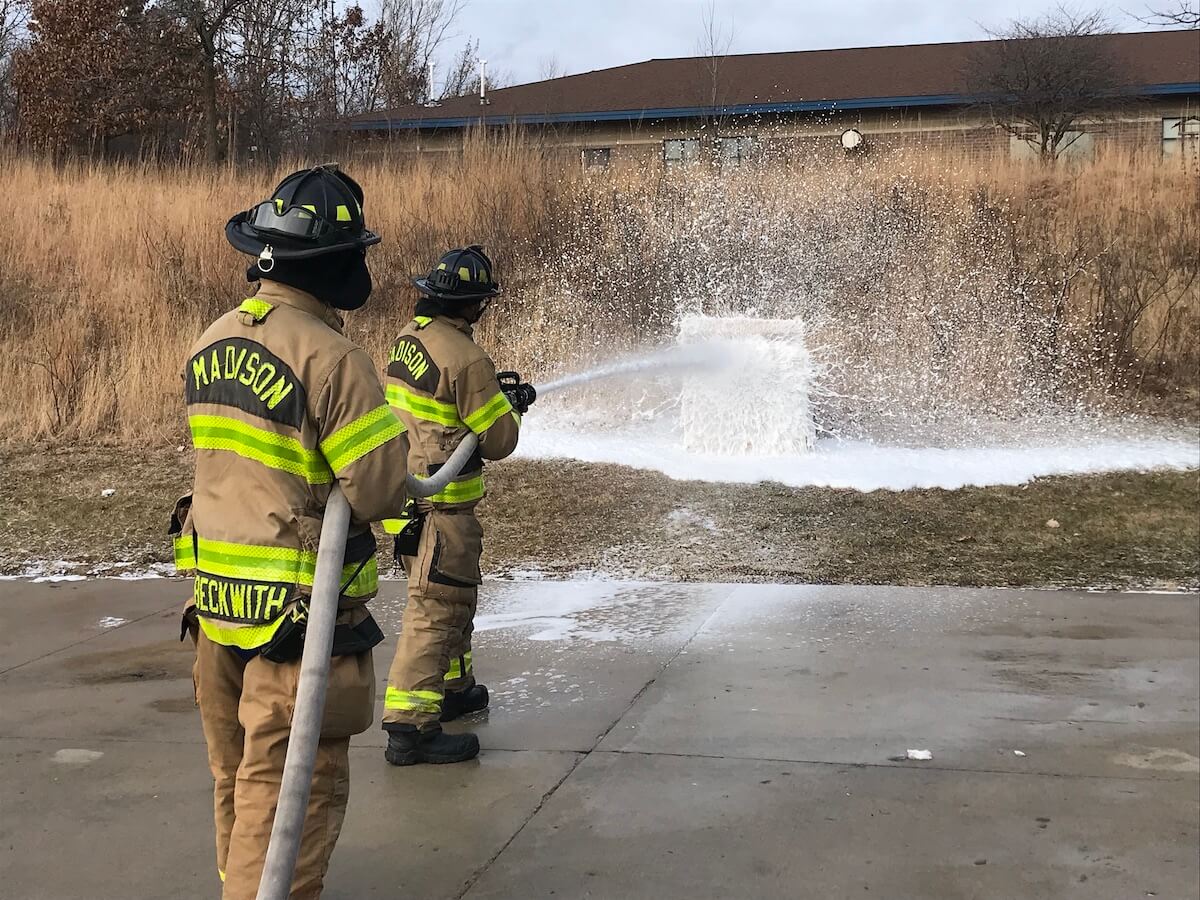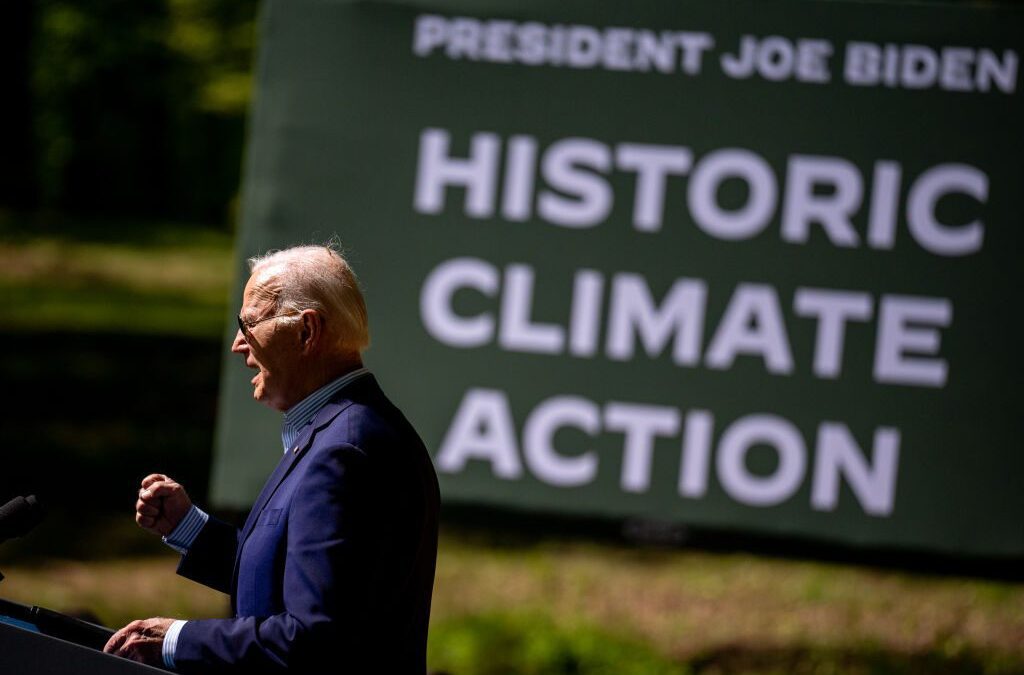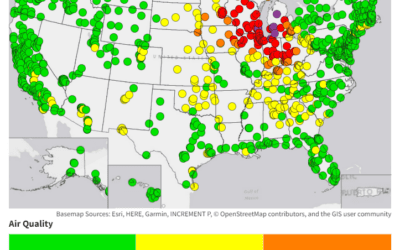
#image_title
Recommendations outline efforts to boost rural economy, enact environmental safeguards. But GOP may be about to weaken rules on “forever chemicals.”
Gov. Tony Evers on Wednesday announced recommendations from two commissions designed to address statewide concerns: One examining economic struggles in rural areas and another addressing water-quality issues related to PFAS, commonly referred to as “forever chemicals.”
The Governor’s Blue Ribbon Commission on Rural Prosperity released its suggested policies to better meet the needs of Wisconsin’s rural communities. The governor’s office also announced the release of the PFAS Action Plan developed by nearly 20 state agencies to address growing public health concerns related to PFAS (perfluoroalkyl and polyfluoroalkyl substances) in the state.
Evers has listed those topics as among the state’s most vital. He declared 2019 as the year of clean drinking water and repeatedly has addressed the need to assist Wisconsin’s rural regions, noting the ailing dairy industry and a lack of broadband access.
The rural prosperity commission report includes 10 major recommendations the governor said would commit state government to create partnerships with both rural and tribal communities to better deliver services, and invest in those areas. Evers created the commission in January as part of his State of the State address.
“This report provides a critically important view of what rural residents and community leaders across our state need as we begin crafting our 2021-23 state budget and other important priorities,” Evers said in a statement about the rural prosperity commission report.
Among the commission’s recommendations:
- Create a place in state government to better understand and work on behalf of rural Wisconsin, including its Native American people.
- Continue efforts to better prioritize the needs of rural communities and Native Americans.
- Ensure rural parts of the state receive their share of state and federal resources.
- Change state law to better allow innovations in rural areas.
- Increase investments in University of Wisconsin System campuses and the state’s technical colleges.
- Rework business incentives to better prioritize the needs of rural areas.
Such efforts are needed to spur economic development and address other challenges in Wisconsin’s rural regions, commission members said.
The report also summarizes current challenges hindering rural economies with the hope of improving them. Included in that list is the need to address agricultural supply chain gaps, supporting childcare professional development, and encouraging more investment in renewable energy projects.
“As a Menominee tribal member, I am proud to have been a part of this process to give our rural communities the platform to showcase their values along with their unique assets,” said Pamela Boivin, a commission member from Menominee County.
The PFAS Action Plan includes 25 measures centered on environmental justice, health equity, and preventing pollution. Last year the governor issued executive order No. 40, directing that the state Department of Natural Resources lead the effort.
Among the recommendations are establishing science-based PFAS standards, streamlining processes associated with delivering safe drinking water supplies to communities where PFAS contamination has occurred, and supporting military veterans who live near military sites and may have a higher risk of PFAS exposure.
PFAS—which do not break down in nature—have gained increased attention in Wisconsin in recent years as more instances of contamination, most notably in Kewaunee and Marinette counties, have been discovered. Added regulations to better protect the environment were enacted by the state Legislature earlier this year, but they fell far short of what had been proposed and agreed to by Republican and Democratic legislators.
Environmental organizations said addressing PFAS contamination is vital. Andrea Gelatt, an attorney with Midwest Environmental Advocates, praised the recommendations of the PFAS Action Council.
“Given the federal government’s lack of comprehensive regulatory action on PFAS, it is imperative that our state government step up to fill the void,” Gelatt said.
But even as Evers proposed filling that void, Republicans leading the Legislature may be about to take a new step to weaken safeguards already put in place.
In August, the Wisconsin Department of Natural Resources Board voted to delay temporary regulations on the use and storage of firefighting foam containing PFAS, bowing to pressure from Wisconsin Manufacturers & Commerce and other pro-business organizations that sent a letter objecting to limiting the amount of PFAS in wastewater. However, in October the board approved the regulations.
At that time, Rep. Joan Ballweg (R-Markesan) and Sen. Stephen Nass (R-Whitewater) said they objected to what they termed overregulation of businesses that would be impacted by the regulations.
Now, the Legislature’s powerful Joint Committee for the Review of Administrative Rules (JCRAR) has scheduled a hearing for Friday that could lead to a vote to reject the proposed rules.
Other organizations that called for the delay in August include the Wisconsin Paper Council, Midwest Food Products Association, Wisconsin Civil Justice Council, and the Wisconsin Water Alliance, an industry-created group which opposes water regulations and is currently led by former Republican Assembly Speaker Mike Huebsch.
Reducing existing PFAS protections would make improvements outlined by the new PFAS Action Plan seem unlikely to occur, said Carly Michiels, government relations director for Clean Wisconsin.
“Weakening this rule completely ignores the plight of the families impacted by PFAS and instead sends a message of support for siding with industry profits,” Michiels said.

From the top: What is this Inflation Reduction Act that’s so important to the presidential election?
It’s part of President Biden’s legislative agenda—the most productive in generations, yet few Americans know all the details of how it improves...

Here’s how to lower your home’s energy bill under the Inflation Reduction Act
It begins with assessing your home’s current energy use, planning improvements, then getting connected to the credits and rebates that can create...

Biden’s EPA announces rules to slash coal pollution, speed up clean energy projects
The Biden administration last month announced a set of four final rules designed to reduce harmful pollution from power plants fired by fossil...

How to apply for a job in the American Climate Corps
The Biden administration announced its plans to expand its New Deal-style American Climate Corps (ACC) green jobs training program last week. ...




